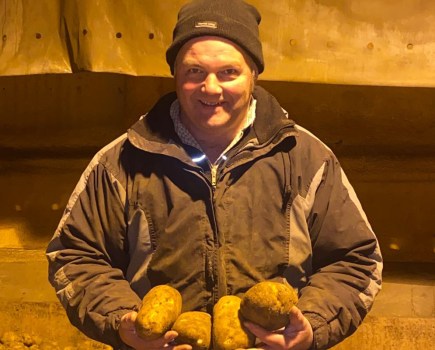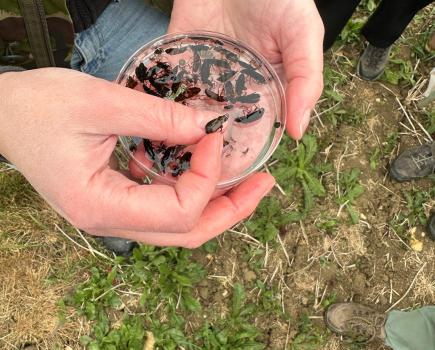By Martin Lines
At the end of March, the government’s Genetic Technology Bill gained Royal Ascent, allowing seed breeders to genetically engineer (GE) crops in England. Meanwhile, devolved governments across the UK haven’t yet accepted this technology, which may prove problematic if other UK countries don’t want GE seed transported from England. But I’m also concerned that our supply chains and the wider public aren’t entirely on board, either.
During the Bill’s process through Parliament, we heard many scientists and farmers championing that GE can provide all the solutions we need to the current challenges within food and farming. We’re now seeing large amounts of funding going into seed breeding to accelerate the use of this technology. The cynic in me believes most of the benefit will go to the seed breeders and companies making more profit from this than the farmers themselves.
Many people strongly believe we need science to solve the problems we face. There may be some benefits to this Bill, but without strong regulation and guidance in the research being done, we could open an even bigger can of worms. For many years, the agriculture industry has relied on science and research to deliver the next tool or input we need to fix our problems. But this approach continues to focus on addressing our problems’ symptoms rather than their cause. I compare this to someone taking more painkillers for a headache but not stopping what’s causing the pain. We can use the tools available to tackle our problems, but we must also focus on addressing what is causing the problem in the first place.
Over the past few years, seed varieties have entered the market that you can’t home save, and now we’re seeing not only royalty charges on seed but license fees on top. Farming should pay royalties to fund the research and development to produce the variety grown, but I’m getting increasingly concerned this will be another escalating cost burden we will have to shoulder. If we end up with varieties we can’t home save, we won’t get the best out of the varieties that work in our soil. We may end up with a very limited pool of genetics if our only option is to buy in more seed.
We have to ask: who benefits from this seed legislation? Corporations or farmers? As I see it, corporate control of seed supply doesn’t favour the farmer producing the food. This control in our supply and demand of seed makes farmers more dependent on the companies producing them, with hefty price tags attached.
Many have learnt that the next chemical solution can’t always fix our problems. For many years, blackgrass was becoming an increasing problem, and each year we needed to use higher levels of inputs or wait for the next available chemical to tackle the problem. This continued to raise our input costs, while the grain price and yield weren’t rising by the same amount. On our farm, we ended up with a field of winter wheat where we used every product available to control the blackgrass and still lost 80% of the yield.
At this point, we started to look at nature-based Integrated Pest Management (IPM). We went back to the beginning and focused on changing our approach and system, starting with drilling dates, a more diverse rotation and spring cropping to reduce the blackgrass burden and our costs. Our previous approach of tackling the symptom of high blackgrass seed numbers with more and more chemical inputs – while not addressing the real cause of the grassweed – wasn’t achieving what we’ve been able to by working with nature through IPM.
I’m encouraged to see more farmers blending seed varieties and crops and seeing positive benefits and reduced inputs. Farmers should have more opportunities to share this knowledge and have the ability to share some of the seed stocks working on their farms. Farmer-led trialling, learning and sharing are crucial. So is understanding the importance of nature in everything we do. But more critical is acknowledging that understanding there’s a limit to how much we can intervene in nature isn’t the same as being ‘anti-technology’. Quick fixes may come and go, but our priority should be to hone how we work with nature, not against it.
This article was taken from the latest issue of CPM. For more articles like this, subscribe here.
Sign up for Crop Production Magazine’s FREE e-newsletter here.




